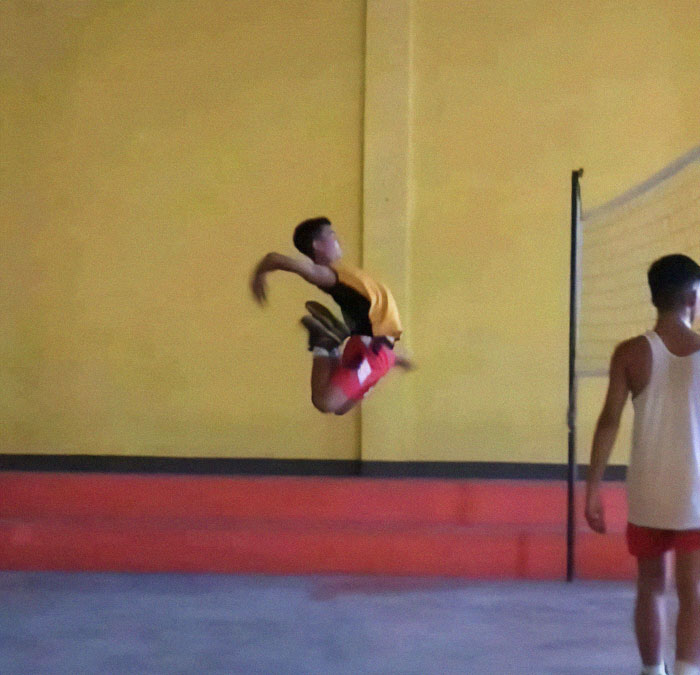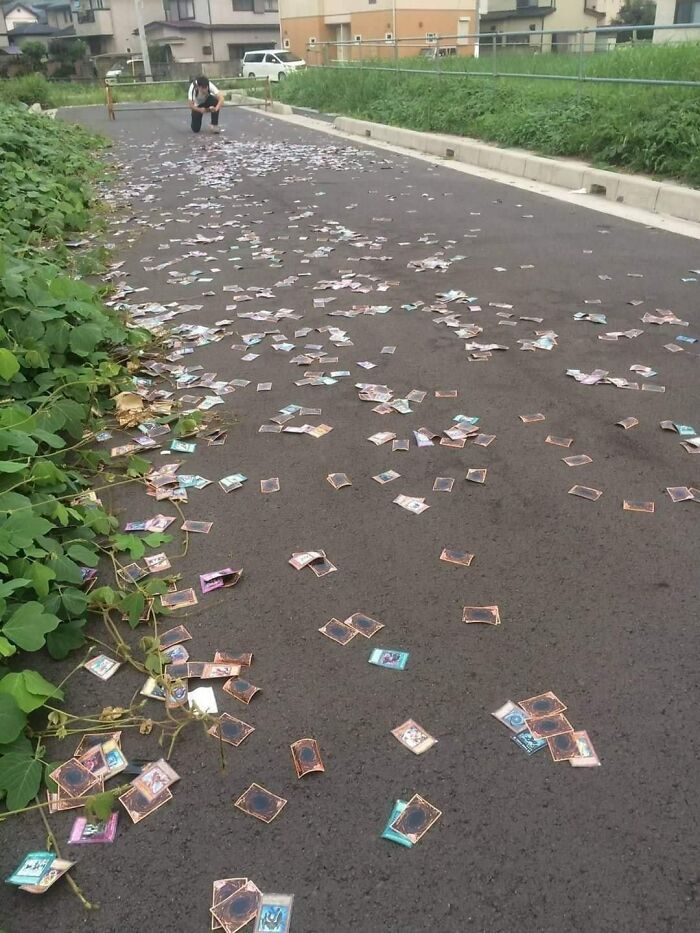
“Some Images”: 50 Confusing And Funny Photos Without Any Context, As Shared By This Facebook Page
Whether we're talking about images that only get weirder the longer we look or pics that just don’t make any sense, people seem obsessed with deciphering the perplexities they stumble upon online. After all, the fact that the internet is a weird place is nothing new. Sometimes, it even looks like a bottomless pit of random and bizarre things that leave us scratching our heads from confusion. But at least it makes us all glue our eyes to the screens!
Let us introduce you to the 'Some Images' Facebook page. With over 236K followers, it posts some of the most ridiculous and wonderfully chaotic pictures that desperately beg for more context. With no captions whatsoever, they leave the door open for people to build their own interpretations and have a few genuine laughs along the way.
So sit back and fasten your seatbelt because we're going to take a wild rollercoaster ride deep into the land of nonsense. We at Bored Panda have gathered some of the best posts from the page and wrapped them up in a baffling compilation below. Continue scrolling, upvote your favorite ones, and be sure to share your bewilderment with us in the comments!
More info: Facebook
This post may include affiliate links.
We've long heard that when it comes to sharing pictures online, people opt for glossy-looking aesthetics and carefully staged scenarios to show off the good side of life. But in reality, the internet is a hilariously bizarre place. The 'Some Images' Facebook page is here to burst your bubble and showcase some of the most out-of-context photos that make the online world seem like one big chaotic mess. A tilted soccer field? Check. A rock that resembles an Xbox controller? Yup. An escalator that turns out to be just a regular flight of stairs? You guessed it. It has plenty of content to make people at least somewhat confused and a lot entertained.
The creator of this page has set out on a mission to collect the most ridiculous images of people and animals floating around, and from the looks of it, they’re doing just fine. These pics are the perfect attention trap because once your eyes land on them, it’s difficult to turn your gaze away.
For Sale: Original Xbox Controller - One owner, works well, no batteries needed. Guaranteed to last longer than you.
If you are bored, don't know what to do? I give you two things: thing one and thing two!
As you scroll through this list, you’ll notice how vividly it illustrates the weird side of humanity and how open to interpretation these photos are. Things that are hard to categorize can throw us off our game, making us put our focus on solving these perplexing puzzles. After all, many of us feel a desire to understand what’s right in front of us, and if we can’t pinpoint what we’re looking at, we start feeling uneasy and confused.
According to psychological scientist Jason M. Lodge and professor of higher education Gregor Kennedy, confusion is usually experienced when we stumble across new information. Especially when this novel knowledge is complex, counter-intuitive, or unlike anything we’ve encountered before. While it’s hard to argue that feeling perplexed is at least slightly annoying, it can be useful (and sometimes even necessary!) when we want to learn something new. You see, confusion is included in the epistemic emotions. In other words, it’s an emotion that’s specifically associated with the development of our knowledge and understanding.
The authors stated that there are two types of confusion: productive and unproductive. "When people are trying to learn something new, confusion is often seen as a negative, something to be avoided," they wrote. "Few of us would readily think that a positive learning experience was associated with the state of confusion. The most obvious reason for this is that confusion, when it persists, can very easily escalate to frustration or boredom." People should try to avoid getting themselves into these situations, as they are only a short step away from disengagement and giving up on the subject.
The key to making our bewilderment serve us well is to recognize it and ensure it wouldn’t persist for too long. So firstly, we have to acknowledge that we’re feeling confused. "Most participants in our studies have been reluctant to admit to experiencing confusion. It is only revealed later through in-depth interviews," the researchers noted. "This is not surprising as there is a negative stigma attached to confusion. It is often unfairly thought of as a sign of stupidity or a lack of intelligence." If you want to harness this emotion when you’re facing challenges with new concepts and ideas, recognize that it exists. "Be comfortable with this, but seek to resolve it."
These days, however, complex theories are often being presented in an easy, engaging, and entertaining way to appeal to the masses. Videos in the media and online can quickly explain difficult ideas with easy-to-understand narration and fluent animations. "It can be easy to find information about highly complex phenomena, such as climate change or vaccination, that seems easy to understand and aligns well with our intuitive conceptions (or misconceptions!)," the authors stated. "The internet has made it easy to find highly engaging and appealing explanations of phenomena that are very good at cutting down the complexity to make these concepts understandable."
But if we want to fully grasp the benefits of confusion, we need to understand two lessons, they argued. "First, being confused about complex concepts and phenomena can mean we are investing enough mental effort into trying to understand. Not finding novel, complex ideas confusing at first can be a sign of overconfidence which has been reliably shown to be detrimental to learning."
Second, people should accept that struggle and bewilderment are important parts of the learning process. "When encountering new, complex ideas, it is useful to find them challenging and confusing, so long as the confusion does not persist too long," Lodge and Kennedy wrote. "The struggle associated with overcoming confusion helps us to find better strategies for understanding the world."
This Shiraz has a unique bouquet of dark plum and black currents don't you think Lord Fauntleroy?
I'm so confused right now. And its only 11.30. Am
i don't know where you are but it's 5 hours difference in time for me
Load More Replies...I'll tell you what's confusing... BP keeps telling me I have comments on different posts... and I don't. Anyone else having strange issues with the BP App?
The app did not work for me. I use the website now and forever.
Load More Replies...I'm so confused right now. And its only 11.30. Am
i don't know where you are but it's 5 hours difference in time for me
Load More Replies...I'll tell you what's confusing... BP keeps telling me I have comments on different posts... and I don't. Anyone else having strange issues with the BP App?
The app did not work for me. I use the website now and forever.
Load More Replies...
 Dark Mode
Dark Mode 

 No fees, cancel anytime
No fees, cancel anytime 







































































































































